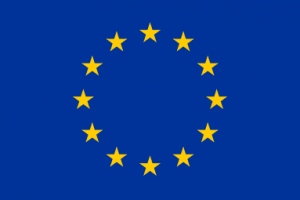From 7 to 13 September, the third edition of the summer school ONSCI (Officina di Narrazione della SCIenza) on science's storytelling and narratives was held at the Department of Physics and Astronomy of the University of Bologna in collaboration with the European project FEDORA.
On the occasion, the local FEDORA network organized “Workshop 2”, with the objective of expanding and strengthening FEDORA’s open schooling network, by involving, above all, teachers and educators, but also doctoral and master students.
In the workshop, three interdisciplinary activities guided the participants into reflecting on the role of knowledge as a source of competences to orient us in the complexity of the contemporary world and on how it is transmitted in a moment of profound transformation. After an initial shared reflection on FEDORA themes (interdisciplinarity, new languages, and future), participants were involved in educational activities focused on the intertwining between the languages of science and arts. Specifically, the participants could choose between three kinds of activities that were based on materials and approaches elaborated by teachers of the high school "Liceo Einstein" in Rimini (Sara Moresco, Paola Fantini, Maurizio Giuseppucci). In particular, the activities proposed were KAIROS and AI Atelier, previously tested by the teachers in the school context, and Mocku for change originally designed by Emma D'Orto for her master thesis work and implemented as part of an extracurricular course. All three involved high school students in their final years.
Kairos is a module designed by Sara Moresco and Paola Fantini of the Liceo “A. Einstein”, in collaboration with the group of Physics Education, represented by Francesco De Zuani Cassina, Veronica Ilari, and Olivia Levrini. The module was developed to reflect on the concept of time and its different nuances. The activity was designed to explore the many visions of time from the perspective of physics (circular time, Newtonian absolute time, linear time) and the perspective of Greek literature (aiòn, kairòs, eniautòs, chrònos). In particular, the kinds of time emerging from physics were addressed with the Greek literature perspectives of time, within a creative writing workshop. The participants were asked to start from the inspiration of physics times and then to write monologues centered around one of the Greek times; the writing process was mentored by a creative writing expert who introduced some writing techniques. The ambition of this workshop was to educate to different visions of time starting from the physics discipline since time and its features seem fundamental pillars of the post-modern society; furthermore, the role of creative writing was to enlarge the possible languages to be used when describing scientific concepts.
The AI Atelier is a module designed by Maurizio Giuseppucci of the Liceo “A. Einstein”, together with Michela Clementi, Fabio Filippi, and Paola Fantini of the same Liceo and in collaboration with the group of STEM Education, represented by Laura Branchetti, Micheal Lodi, Eleonora Barelli, Andrea Zanellati. The module was developed to reflect on the relationship between art, creativity, and artificial intelligence (AI) in the era of generative AI. The activity was designed to explore some open questions that marked the history of computers such as “Can machines think?”, “Can artificial intelligence be creative?” and “What are the differences between humans and artificial creativity?” through the reflection on the languages of contemporary art and the potential of Open A.I. platforms like chatGPT, midjourney, and DallE. During the activity, participants, after being introduced to some examples of contemporary arts, were guided to realize final artworks with the help of the Open AI platforms paving the way to reflections on the relationship between AI and ars as well as new possible and more sustainable relationships between humans and technology.
The Mocku for Change activity was designed by Emma D’Orto, together with Giulia Tasquier, of the research group in Physics Education and was developed to explore the use of the film-making genre known as “mockumentary” to address the topic of Climate Change. Mockumentaries are fictional stories that appropriate the aesthetics of the documentary genre, using their same codes and conventions. The genre was used to help students build “fictional yet realistic” Climate Change scenarios by reflecting upon the different forms of uncertainties that we need to address both from a scientific and an artistic/narrative point of view when we imagine our future. Participants were guided to explore the concept of uncertainty by analysing the differences between fiction and non-fiction, which meant reflecting both upon “scenario” as a projection of today’s scientific knowledge on Climate Change based on Climate models and “ scenario” as paths into the future guided by imagination and specific desirable goals.
